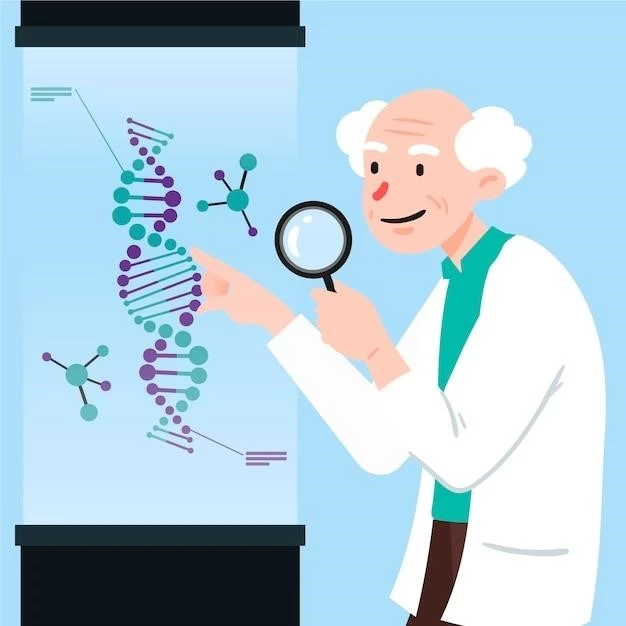Symptoms of Chromosome 11p Deletion Syndrome
The symptoms of Chromosome 11p Deletion Syndrome can vary widely.
Common signs include developmental delays, intellectual disabilities, and facial differences.
Other symptoms may include seizures, heart defects, and growth delays.
Individuals may also experience behavioral issues and speech delays.
Overview of Chromosome 11p Deletion Syndrome
Chromosome 11p Deletion Syndrome is a rare genetic disorder caused by the deletion of a small piece of the short arm of chromosome 11.
Individuals with this syndrome may exhibit a range of physical, cognitive, and developmental challenges.
Early diagnosis and comprehensive care are essential for managing the impact of the syndrome on affected individuals and their families.
Common Symptoms
Common symptoms of Chromosome 11p Deletion Syndrome include developmental delays, intellectual disabilities, facial differences, seizures, heart defects, growth delays, behavioral issues, and speech delays.
Early identification and management of these symptoms are crucial for providing appropriate care and support to individuals with this syndrome.
Lesser-Known Symptoms
While Chromosome 11p Deletion Syndrome presents common symptoms, there are lesser-known manifestations such as kidney abnormalities, vision problems, hearing loss, musculoskeletal issues, and gastrointestinal complications.
These less prevalent symptoms may require specialized medical attention and ongoing monitoring to address potential health challenges effectively.
Treatment Options for Chromosome 11p Deletion
Various treatment approaches aim to manage symptoms and enhance quality of life for individuals with Chromosome 11p Deletion Syndrome.
Current Treatment Approaches
Current treatment strategies for Chromosome 11p Deletion Syndrome focus on addressing individual symptoms, including early intervention services, speech therapy, occupational therapy, specialized education programs, and medical management of associated health issues.
Multidisciplinary care teams collaborate to provide personalized care plans to optimize the well-being of affected individuals.
Medication Management
Medication management for Chromosome 11p Deletion Syndrome focuses on treating specific symptoms such as seizures٫ heart conditions٫ behavioral issues٫ and other associated health concerns.
Close monitoring and collaboration with healthcare providers help adjust medication regimens to address the individual needs of each patient effectively.
Future Treatment Prospects
Research into innovative treatment modalities for Chromosome 11p Deletion Syndrome shows promising advancements in targeted therapies٫ gene editing technologies٫ and personalized interventions.
Continued studies aim to enhance treatment effectiveness, improve outcomes, and potentially pave the way for novel treatment options to address the underlying genetic mechanisms of the syndrome.

Genetic Counseling for Chromosome 11p Deletion
Understanding the genetic implications and potential risks is crucial in genetic counseling.
Understanding Genetic Counseling
Genetic counseling provides individuals and families with essential information about the inheritance patterns, potential health outcomes, and available testing options related to Chromosome 11p Deletion Syndrome.
Through personalized guidance and support, genetic counselors empower individuals to make informed decisions regarding their genetic health and family planning.
Genetic Testing Process
The genetic testing process for Chromosome 11p Deletion involves analyzing DNA to identify chromosomal abnormalities.
Testing can help confirm a diagnosis, assess the risk of passing the syndrome to future generations, and guide medical management and family planning decisions.
Family Planning Considerations
Family planning for Chromosome 11p Deletion Syndrome involves discussing reproductive options and the likelihood of passing the genetic condition to offspring.
Genetic counselors provide support in making informed decisions about pregnancy, adoption, or assisted reproductive technologies to address the risk of genetic transmission within the family.
Understanding the Causes of Chromosome 11p Deletion
Chromosome 11p Deletion occurs when a portion of the short arm of chromosome 11 is missing.
Genetic Mechanisms
The deletion on chromosome 11p can disrupt the normal functioning of genes involved in growth and development.
These genetic changes may lead to the characteristic features and health issues observed in individuals with Chromosome 11p Deletion Syndrome.
Environmental Factors
While the deletion on chromosome 11p is genetic, environmental factors can influence the expression of symptoms.
Factors such as prenatal exposures, nutrition, and healthcare access may play a role in modulating the severity of manifestations in individuals with Chromosome 11p Deletion Syndrome.
Risk Factors
Advanced parental age, maternal exposure to certain environmental toxins, and genetic predispositions are potential risk factors associated with the occurrence of Chromosome 11p Deletion Syndrome.
Understanding these risk factors can aid in early recognition, genetic counseling, and tailored healthcare management for affected individuals.
Prognosis and Life Expectancy with Chromosome 11p Deletion
Prognosis varies based on individual symptoms and medical management.
Prognostic Outlook
The prognostic outlook for individuals with Chromosome 11p Deletion Syndrome is influenced by the severity of symptoms, comorbidities, and access to supportive care measures.
Early intervention, comprehensive healthcare management, and tailored support can positively impact the long-term prognosis and quality of life for affected individuals.
Life Expectancy Factors
Life expectancy in Chromosome 11p Deletion Syndrome can be affected by medical complications, supportive care, and adherence to treatment regimens.
Regular monitoring, early intervention, and holistic healthcare management play key roles in improving life expectancy and enhancing overall well-being for individuals with this genetic condition.
Supportive Care Measures
Supportive care for Chromosome 11p Deletion Syndrome includes multidisciplinary interventions to address physical, cognitive, and emotional needs.
Therapies, educational support, community resources, and caregiver assistance all contribute to enhancing the quality of life for individuals and families affected by this genetic condition.
